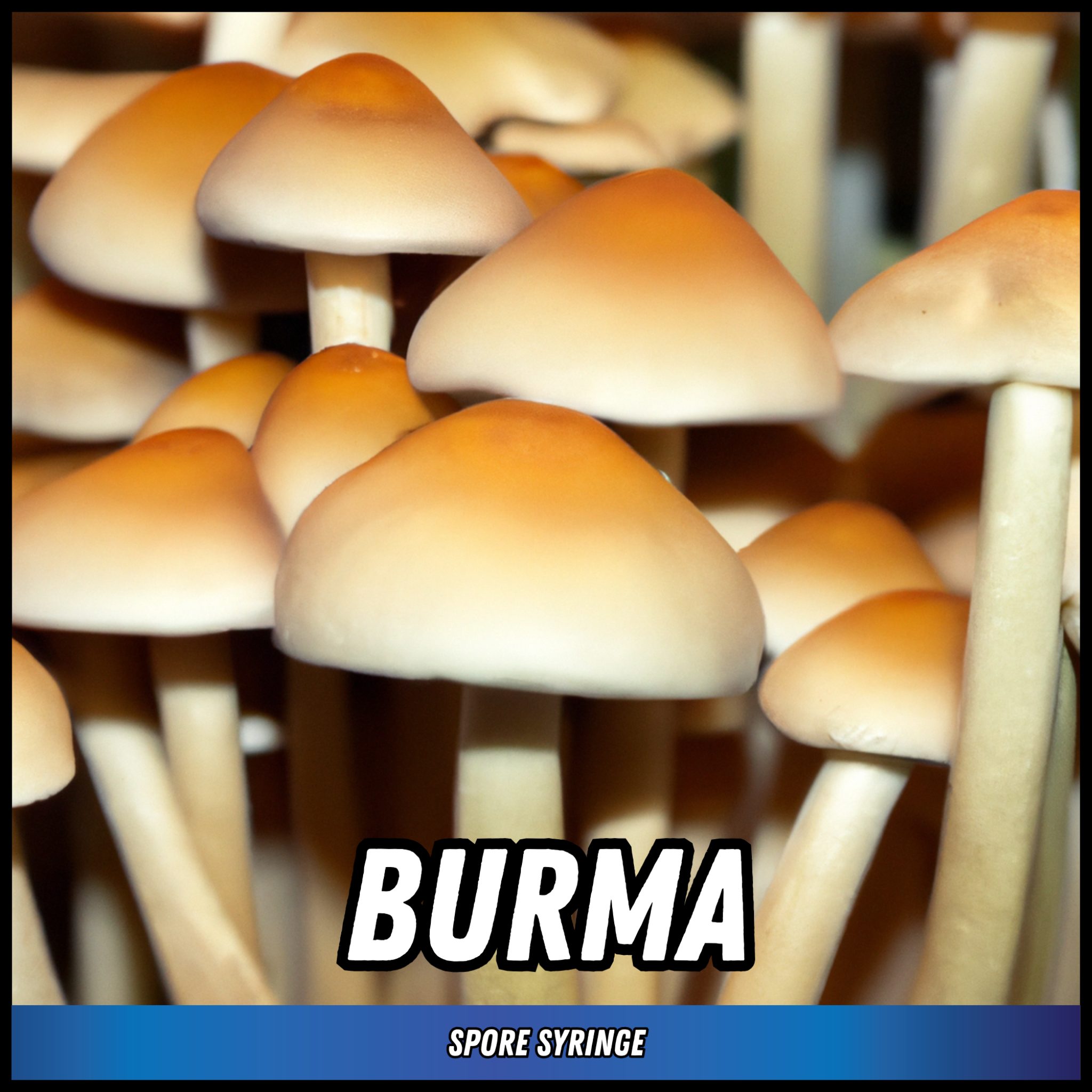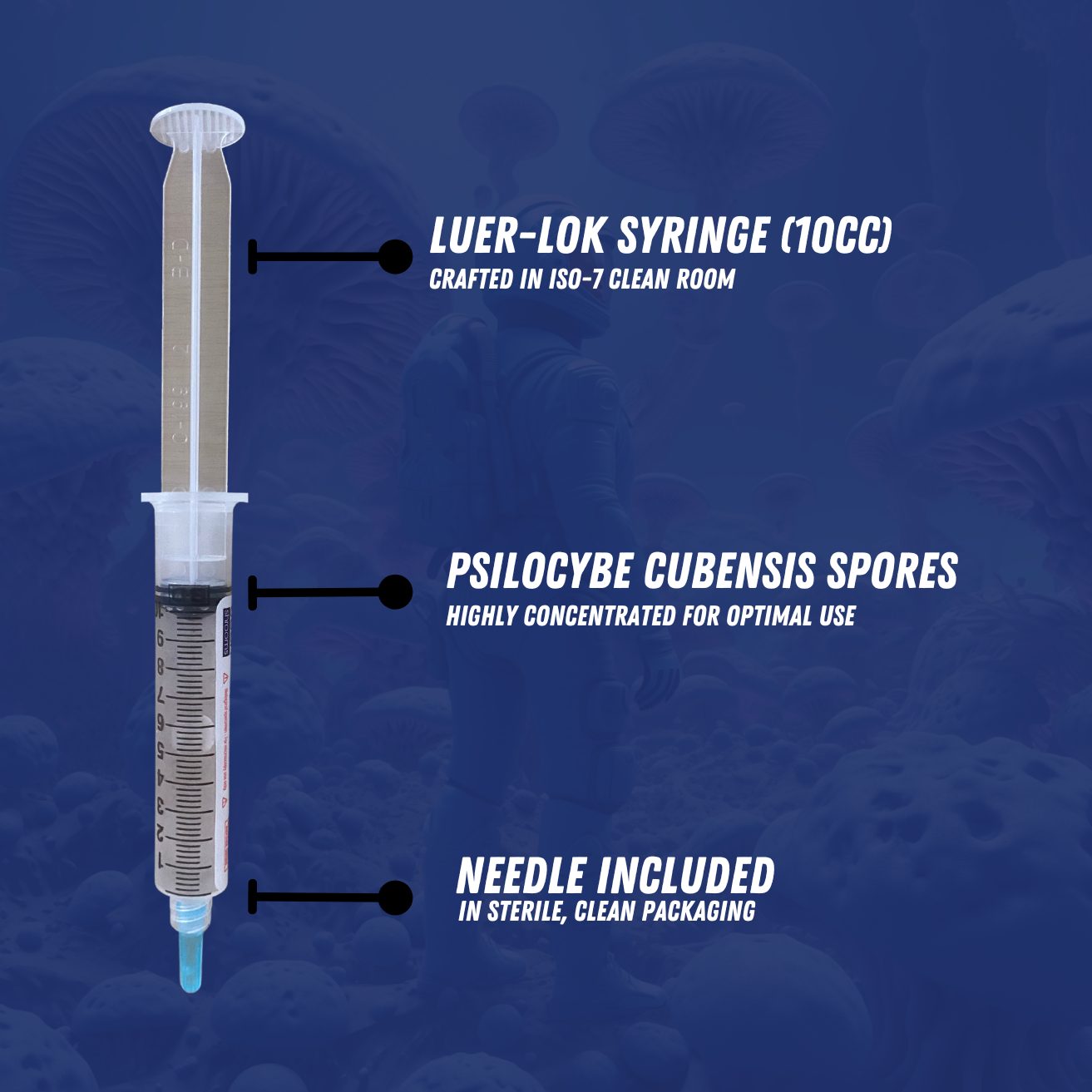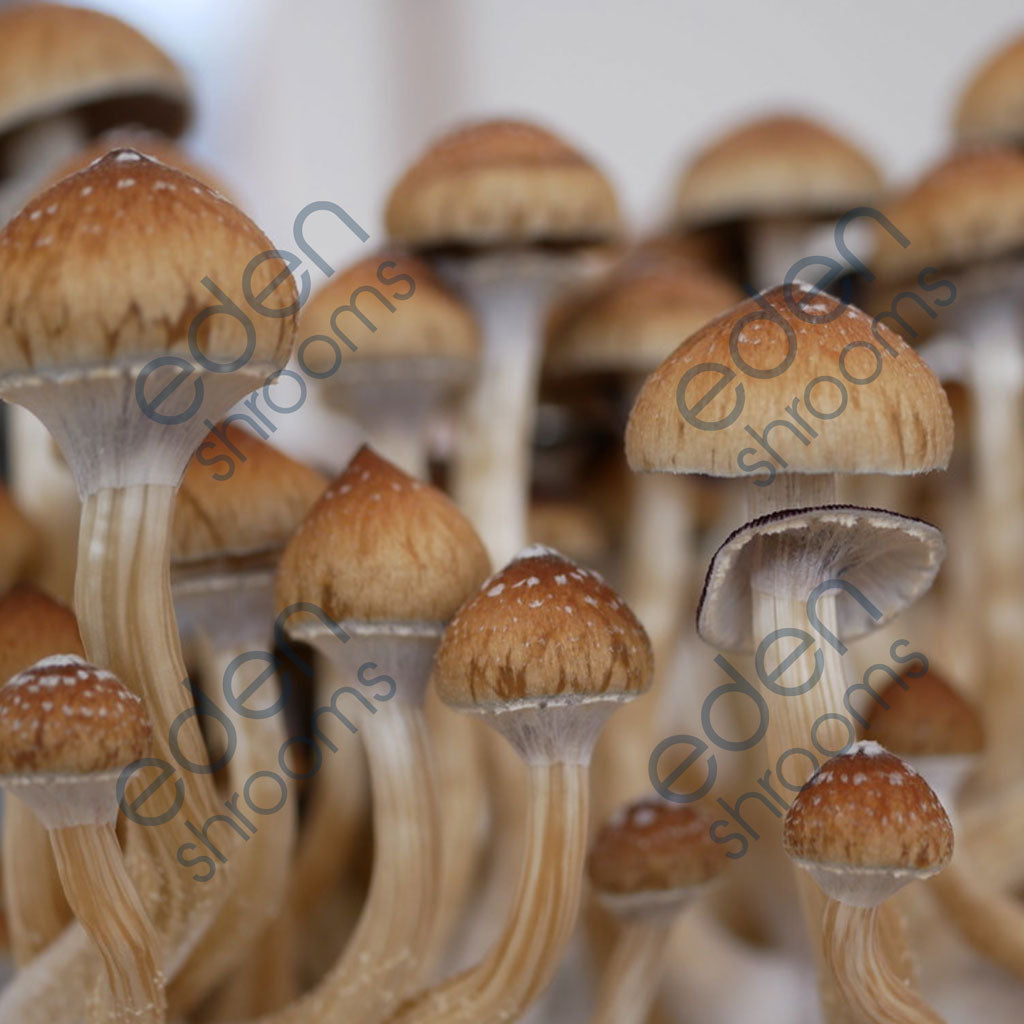Looking for Burma Mushroom Spores? You’re right where you need to be.
Our Burma (Psilocybe Cubensis) spores are genetically tested, vigorous, & assembled in an ISO-7 clean room so that you don’t run into any issues.
| Skill Level | Beginner |
|---|---|
| Species | Psilocybe cubensis |
| Spore Color | Purple / Brown |
| Speed | Moderate to fast |
Kit Contents
- 10CC Psilocybe cubensis spore solution in luer-lok syringe
- 1 x sterile 18ga blunt tipped needle
- Spores are highly concentrated and must be shaken up into the solution before use.
Strain Origin
This variety was first collected in the beautiful Southeast Asian country now known as Myanmar (formerly known as Burma). It was found growing on water buffalo dung outside the city of Yangon (formally Rangoon). Funny enough, the student who discovered it was a young mycologist from Thailand, not Myanmar.
Difficulty
The Burma strain is considered to be a relatively easy cultivar to work with & study. For comparison, it is on a similar level to Mazatapec, Golden Teacher, or Albino A+.
Spore Features
Spores are dark purple to brownish, sub-ellipsoid on 4-spored basidia.
Rarity
Burma spores are actually quite rare in the grand scheme of things. Given their remote origin, it is often tricky to find Burma spores with authentic, proven genetics. Many vendors will provide mixed bags, unviable spores, or a totally different species thinking they can get away with it. We’ve been supplying spores since 2008 and have a team of mycologists ensuring every single batch.
Cultural Significance
Interestingly, this P. Cubensis strain from Myanmar, discovered by a Thai man, has grown its primary cultural roots here in the USA. Almost as a reflection of America’s diversity & immigrant history, this mushroom found a home in the underground mycology community and has claimed its new identity on American soil. Today, almost 93% of the world’s Burma spores are distributed here, and that number is climbing! However, that is not to say that the people of Myanmar do not enjoy this mushroom. Rather, they just consider it a common local mushroom in contrast to the “Burma Strain” name it was given here. Branding & commercialization is also a reflection of its newfound home in the USA, a force driving this unique strain into the mainstream.
Still Considering Burma Spores?
We all take different roads on our path to mastering mycology. If you are intimidated by this strain, or are simple unsure, consider looking at all of our magic mushroom spores.









